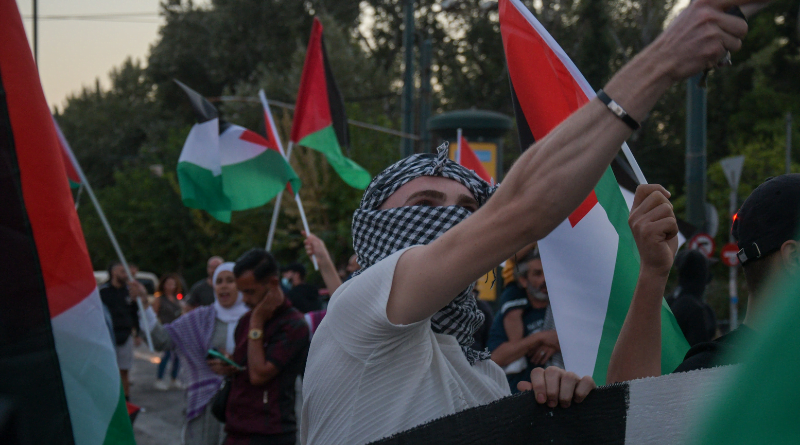
The Palestinians epitomize an Arab ethnonational collective whose lineage traces back to inhabitants of the Palestine region spanning millennia. They coalesce through a shared vernacular, customs, and historical tapestry, embodying a distinct people entitled to self-determination.
The genesis of the Palestinian populace is intricate and embroiled in dispute, yet scholarly consensus prevails, grounding them in ancient Canaanites, Israelites, and diverse ethnic groups that have occupied Palestine across the ages. The Palestinian identity began crystallizing in the latter part of the 19th century when Palestinian Arabs commenced asserting their national prerogatives, confronting Ottoman and Zionist dominion.
Presently, there are over 13 million individuals of Palestinian descent worldwide, with around 5.5 million residing in the Palestinian regions of the West Bank and Gaza Strip. The rest find their homes within refugee enclaves and diasporic communities across the globe, spanning Israel, Jordan, Syria, Lebanon, and other Arab nations.
The Palestinians boast a multifaceted and diverse cultural panorama. They converse in Palestinian Arabic, a dialect of the Arabic language prevalent in Palestine and the broader Levant region. Additionally, Palestinians have an illustrious musical heritage, and their culinary traditions are distinguished by the utilization of locally sourced, fresh ingredients.
While the majority of Palestinians adhere to Sunni Islam, a substantial Christian minority coexists. Palestinian Christians span various denominations, including Greek Orthodox, Roman Catholic, and Armenian Orthodox.
The Palestinian narrative bears the indelible marks of both victory and calamity. Enduring centuries of foreign dominion and subjugation, they simultaneously exemplify profound resilience and unwavering resolve in their pursuit of self-determination.
The Nakba, or Palestinian Catastrophe, in 1948, saw Palestinians forcibly evicted from their ancestral homes and lands, now situated within the boundaries of Israel. This expulsion rendered over 700,000 Palestinians refugees, and countless others experienced internal displacement.
Subsequently, Palestinians have lived under Israeli occupation in the West Bank and Gaza Strip. This occupation has been fraught with human rights violations, including territorial confiscations, domicile demolitions, and the erection of a partition barrier.
The Palestinian Quest for Self-Determination
For well over a century, Palestinians have ardently pursued self-determination, seeking the establishment of a sovereign Palestinian state encompassing the West Bank and Gaza Strip, with East Jerusalem as its capital.
This pursuit has encountered resolute opposition from Israel and its allies. Israel has persistently resisted withdrawal from Palestinian territories and, in defiance of international law, continues to expand settlements in the West Bank.
The outlook for the Palestinian populace remains enigmatic. They grapple with formidable trials, including Israeli occupation, the Gaza Strip blockade, and the fracture of their territorial expanse.
Notwithstanding these hurdles, Palestinians maintain their commitment to the quest for self-determination. Their determination to construct a sovereign and autonomous Palestinian state, where all Palestinians can dwell in tranquility and honor, remains unwavering.
Palestinians confront an array of challenges, encompassing:
Israeli occupation: The Israeli occupation of the West Bank and Gaza Strip exerts a devastating impact on Palestinian lives. It subjects them to human rights violations, such as territorial usurpations, domicile demolitions, and the erection of a partition wall.
Gaza Strip blockade: Israel’s blockade of the Gaza Strip precipitates a humanitarian crisis, curtailing the mobility of people and goods, while inflicting ruinous effects on the Gaza Strip’s economy and infrastructure.
Territorial division: The Palestinian territories remain divided into two discrete entities, the West Bank and the Gaza Strip. This division has posed impediments to the establishment of a unified state.
Palestinians persist in their endeavors to surmount these challenges, with initiatives to establish institutions, nurture economic development, and foster educational and cultural pursuits. They are also engaged in the promotion of internal harmony and reconciliation.
The Palestinian people personify tenacity and possess a cultural tapestry replete with a rich history. They have grappled with momentous obstacles, yet their commitment to self-determination remains steadfast. The Palestinians merit the right to reside in serenity and dignity within a sovereign and autonomous Palestinian state.



